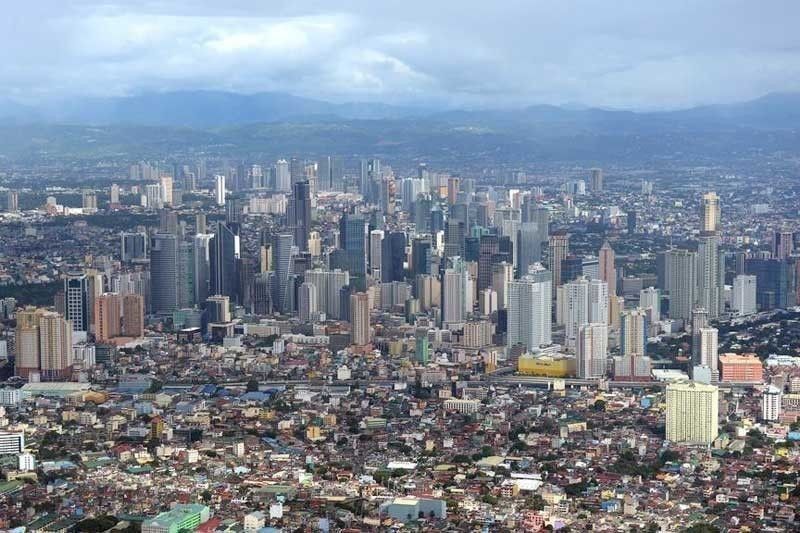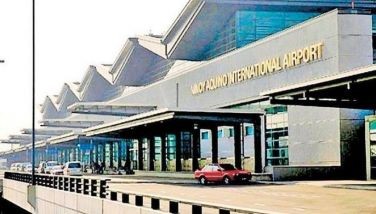Philippines seen as fertile ground for green building industry

MANILA, Philippines — The International Finance Corp. (IFC), the private sector arm of the World Bank Group, is pushing for the creation of a robust green buildings industry in the country because of mass market potential and the possibility of greater engagement with banks on green finance.
In line with its ongoing efforts to groom the sector and ramp up investments in green buildings in the Philippines, IFC technical and business specialists introduced to bankers and property developers last week a so-called resilience tool that can help the financial sector assess the impact of climate and disaster risks to projects seeking green financing.
Once it gains foothold, the tool can eventually be used by IFC as a precondition for making its investments through Philippine banks.
IFC global technical head for EDGE Ommid Saberi said the Philippines is a fertile ground for the development of a strong green building industry because of the frequency of occurrence of natural disasters in the country.
The EDGE software and certification program which was launched a few years back is currently used mostly by building designers and property developers who want their buildings to withstand various climate stresses for a long period of time and command greater value in the market.
Among the first buildings in the country to be EDGE-certified are the Ascott Makati developed by Ascott Ltd., and Primavera Residences Towers A and B developed by Italpinas Development Corp.
Technology-wise, buildings in the country are still using outdated technology that do not enable structures to withstand calamities and are often not efficient in the use of energy and materials.
“The problems that climate change is creating for global conditions from economy to people, to social development is extreme and is going to be enormous as we go,” said Saberi in a recent interview.
“The building sector in various parts of the world, like the Philippines, has been left behind, using old-fashioned technologies,” he said.
The prevailing need for low-cost housing in the country is also encouraging IFC to focus outside niche markets like high-end buildings.
“You cannot solve the climate change problem by going only for niche markets, just the high-end commercial buildings. The action has to be on a scale,” said Saberi, noting untapped solutions for green buildings can produce great results for the mass market like in social housing.
Saberi said while it is a good thing that market leaders in the country have been able to showcase their ability to adapt new building technologies, more players in construction and finance can build on these gains.
In line with this, he said IFC is aiming to make EDGE and the new resilience tool a standard for green building development in the country.
“EDGE can be a common language between the buyers, developers, and governments,” he said.
“The solutions have to be for everybody, but you cannot expect everyone to act without getting the banking sector in the game because financing plays a very big role. Only with the banking sector can we make the biggest impact,” he said.
IFC has had some investments in the Philippine building sector but to expand, it will have to engage more with the banking sector.
“With IFC, we have done our own investments here in the Philippines, but to scale up we need to engage the banking sector,” said Saberi.
The resilience tool, he said, would also benefit buyers because they would know the risks involved in the purchase of properties.
The tool works as a five level grading system based on several criteria, with a grade of A given to projects that bear the least risk.
In line with the Paris climate agreement, IFC is allocating 35 percent of its annual investments to climate projects worldwide up to 2030.
For this reason, Saberi said there is a need to develop markets where these investments would be placed.
The recent workshops on the resilience tool has so far attracted the attention of major banks such as Banco de oro, Chinabank, Rizal Commercial Banking Corp., Union Bank, and Security Bank.
IFC’s EDGE global business leader Rusmir Music said that in the course of engagement with Philippines banks and developers, results of previous projects show only a minimal increase in capital expenditure to pursue green designs.
“What we are doing different now is to bring stories and data that we got from our own current projects. So when we launched EDGE, we had a thesis that the extra cost for green will not be as high as people thought will be because it can be done through smart design” he said.
“We can now substantiate that data because we have been getting the reports from the developers.” By using smart design and supplementing it with mechanical and solar, we can accomplish efficiency without being too expensive,” he said.
- Latest
- Trending
































